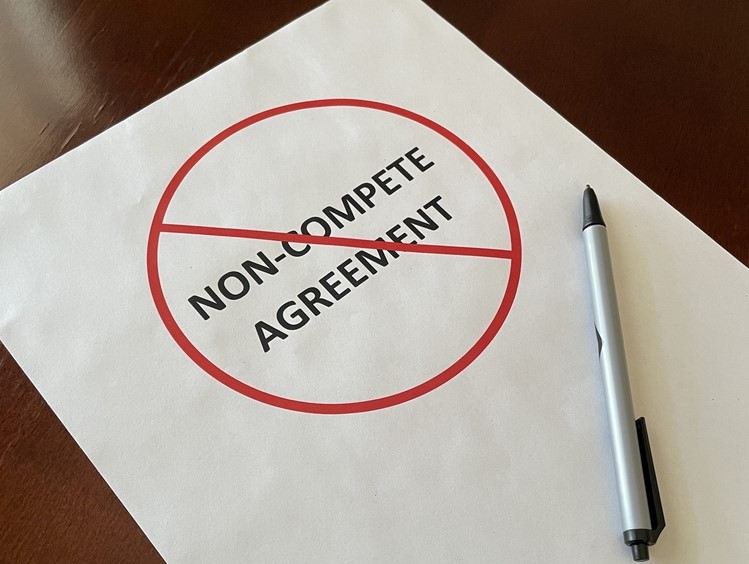FTC Issues Final Rule Banning Non-Compete Agreements
FTC Issues Final Rule Banning Non-Compete Agreements
On April 23, 2024, the Federal Trade Commission voted in favor of issuing a Final Rule banning non-compete agreements, declaring them an unfair method of competition. The Final Rule will go into effect 120 days after being published in the Federal Register, though there will certainly be legal challenges to it.
What are Non-Compete Agreements?
A non-compete agreement is typically an agreement entered into between an employer and an employee or independent contractor, preventing the employee/independent contractor from going to work for a competitor. In Florida, non-compete agreements are limited by statute, but are generally enforceable as long as there is a legitimate business interest justifying the non-compete agreement and it is reasonably necessary to protect such an interest. Key considerations are whether a non-compete agreement is reasonable in duration, scope of activities prohibited, and geographic area.
History of and Reasons for the FTC’s Final Rule
On January 5, 2023, the FTC released a Notice of Proposed Rulemaking (“NPRM”) to prohibit employers from imposing non-compete clauses on workers, asserting that non-compete clauses reduce workers’ wages, stifle new businesses and ideas, exploit workers, and hinder economic liberty. Moreover, the FTC theorized that there were other, less harmful, ways that employers can protect their trade secrets and other investments. It also contended that its proposed rule banning non-compete agreements could increase workers’ earnings across industries and job levels by $250 billion to $296 billion per year.
Reaction to the NPRM was intense, and over 26,000 public comments were submitted to the FTC. Businesses broadly condemned the proposed rule, asserting that the FTC was exceeding its authority and insisting that such agreements were essential to promote employee hiring and training and protect investments in research and development. The U.S. Small Business Administration Office of Advocacy also strongly opposed the rule.
Final Rule’s Prohibitions and Exceptions
The Final Rule bans non-compete agreements for all workers as of its effective date (120 days after being published in the Federal Register). Existing non-compete agreements may remain intact only for senior executives – those earning more than $151,164 annually and who are in policy-making positions. Otherwise, existing non-compete agreements are unenforceable and employers are required to provide notice to those affected employees and independent contractors that the agreements will not be enforced (model language for such notice can be found within the Final Rule on pp. 565-566).
The Final Rule contains three exceptions: (1) where the non-compete agreement is entered into in connection with the sale of a business, (2) where a cause of action related to a non-compete clause accrued prior to the effective date of the Final Rule, and (3) where a person or entity acts with a good faith basis to believe that the Final Rule is not applicable.
The Final Rule also does not apply to certain exempt employers who are not covered by the FTC Act, including certain banks, savings and loan institutions, federal credit unions, common carriers, and air carriers.
Expected Legal Challenges
The U.S. Chamber of Commerce has already filed a lawsuit challenging the Final Rule, asserting that (i) the FTC is without authorization to issue a rule which purports to proscribe “unfair methods of competition,” (ii) non-compete agreements are not categorically “unfair,” (iii) the rule is impermissibly retroactive, and (iv) the rule is arbitrary and capricious. Other lawsuits will certainly follow, and the issue will likely end up before the conservative-leaning U.S. Supreme Court.
Take-aways for Businesses
Businesses should immediately review their non-compete agreements and determine whether enforcement of them would fall under one of the stated exceptions. Otherwise, until there has been a ruling striking down or staying the Final Rule, businesses should prepare to comply with it and consider alternative ways to protect their trade secrets, confidential information, and customer goodwill. Confidentiality agreements, fixed-term employment agreements, and non-solicitation agreements are not banned by the Final Rule. Moreover, businesses will want to consider putting more restrictions on information and things that they wish to protect, and expeditiously obtain patents where warranted. Finally, thoughtful efforts to maintain a strong company culture can also reduce the risk that employees will leave for a competitor.
RumbergerKirk attorneys are available to discuss the Final Rule and to assess the enforceability of existing non-compete agreements, potential challenges to the Final Rule, and other mechanisms to reduce the risks associated with employees taking confidential and trade secret information to competitors.








